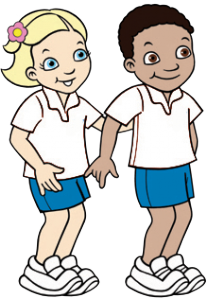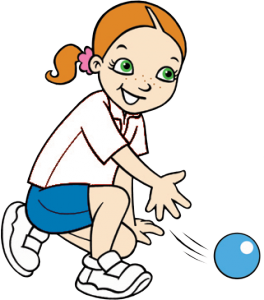Physical Education
PE – Intent, Implementation, and Impact
Intent
At Sunnyside Primary Academy we are dedicated to fostering the holistic development of our pupils through our PE Curriculum. We aim to provide a dynamic and inclusive learning environment that promotes physical fitness, motor skills, and social well-being. Through a well-balanced curriculum, our primary PE program aims to instill a lifelong love for physical activity, healthy habits, resilience and teamwork. Driven through our four pillars, we prioritize safety, enjoyment, and skill development, ensuring that every pupil has the opportunity to thrive physically, emotionally, and socially. Our goal is to empower our pupils with the knowledge and skills they need to lead active, healthy lives and to appreciate the importance of physical fitness in their overall well-being.
Our PE scheme of work enables pupils to meet the end of key stage attainment targets outlined in the national curriculum.
Striving for Excellence:
In our primary Physical Education (PE) curriculum, we encourage our pupil’s to strive for excellence by promoting not only physical fitness but also a holistic approach to well-being. Excellence in PE goes beyond achieving athletic prowess; it involves setting personal goals, developing teamwork, and fostering a lifelong love for physical activity. Through engaging lessons, team sports, and fitness challenges, our pupil’s learn discipline, perseverance, and the importance of a healthy lifestyle. We inspire them to reach their full physical potential while understanding the significance of sportsmanship and inclusivity. Striving for excellence in PE not only improves their physical health but also enhances their mental and emotional well-being, preparing them to lead active, balanced lives and excel in various aspects of their educational journey.
Developing Vocabulary:
In our primary PE curriculum, we place importance on developing a comprehensive vocabulary related to physical activity, health, and well-being. We understand that a robust vocabulary is essential for pupil’s to communicate effectively about their bodies, movements, and physical experiences. Through engaging lessons, discussions, and practical activities, our pupil’s build a strong foundation in the language of PE. This linguistic proficiency not only enhances their ability to describe and understand physical concepts but also encourages them to make informed choices about their health and fitness. By emphasizing vocabulary development in PE, we empower our pupil’s to communicate their needs, challenges, and successes in the realm of physical education, promoting a deeper understanding of the importance of an active lifestyle.
Building Community:
In our primary Physical Education (PE) curriculum, we believe in building a strong sense of community among our pupil’s through physical activity and teamwork. PE isn't just about exercise; it's about fostering camaraderie, mutual respect, and healthy competition. Through group sports, cooperative games, and fitness challenges, our pupil’s learn to collaborate, support one another, and appreciate the value of teamwork. This sense of community not only enhances their physical development but also promotes social skills, sportsmanship, and a sense of belonging. We aim to create an environment where every pupil feels included, valued, and motivated to lead an active and healthy lifestyle, making PE not just about personal fitness but also about building a strong and cohesive community of young athletes.
Expanding Cultural Experiences:
Teaching PE (Physical Education) serves as a dynamic platform to expand cultural experiences and align with SMSC (Spiritual, Moral, Social, and Cultural) objectives in our curriculum. Through sports and physical activities, pupil’s engage with diverse cultures, as many sports have global origins and traditions. This exposure fosters cultural understanding, appreciation for different athletic practices, and respect for cultural diversity. PE also promotes social and moral development by encouraging teamwork, fair play, and respect for rules, aligning with the social and moral aspects of SMSC objectives. Moreover, physical activities can foster spiritual well-being through self-discovery, perseverance, and setting personal goals. Overall, teaching PE enriches pupil’s' cultural awareness, social skills, and personal values, contributing to their holistic development and alignment with SMSC objectives in an increasingly interconnected world.
Implementation
Our primary physical education program is designed to provide our pupil’s with comprehensive physical education experiences. With two hours of dedicated PE time per week, taught by class teachers, we ensure a well-rounded approach. This includes one hour of indoor activities and one hour of outdoor activities, or occasionally, we may block this into one unit for immersive learning. We follow a structured curriculum using the Primary PE Planning Platform, which incorporates three pillars of progression and offers excellent resources. Our curriculum prioritize the progression of key skills, and we employ adaptive teaching methods that cater to the abilities of all our pupil’s, making our resources fully inclusive.
To track the progress of every child, we utilize the PPP PE tracker tool. Our curriculum is meticulously planned to ensure progression, and we integrate our school values with PE values seamlessly through the PPP scheme. Additionally, we offer a fully inclusive curriculum that promotes diversity and inclusion for all our pupil’s.
Beyond the classroom, we provide numerous opportunities for pupil’s to engage in physical activities. We offer clubs that are accessible to all pupil’s and encourage competitive opportunities both within our school and through participation in the School Games. To foster leadership skills and encourage active play, we have appointed play leaders during break and lunch times and mini coaches to assist during PE lessons and extracurricular activities. Our primary PE program is committed to nurturing not only physical fitness but also personal development and social engagement in a supportive and enriching environment.
Our national curriculum mapping shows which by units cover each of the national curriculum attainment targets as well as the strands and our progression of knowledge and skills shows the skills that are taught and how these skills develop to ensure that attainment targets is securely met by the end of each key stage.
Impact
Our curriculum is designed in a way that children are actively involved in the evaluation, dialogue and decision making about the quality of their work and the improvements they need to make. We expect children to make remarkable progress and become not only physically competent but also confident in their abilities. Their love for PE is palpable, as they eagerly engage in activities, and their confidence as learners soars. They are unafraid to take risks and embrace challenges, fostering a growth mindset. All children, regardless of their abilities, actively participate in PE, promoting a culture of inclusion. Beyond the gymnasium, children are empowered to adopt healthy habits that become ingrained in their daily lives, ensuring their well-being. We identify target groups and implement measures to help every child progress towards meeting national curriculum expectations. Even the most able learners are appropriately challenged through our robust assessment practices. Through our curriculum, children are exposed to a wide array of activities, some of which may be otherwise inaccessible outside of school. It acts as a springboard for them to explore and join community clubs, expanding their horizons.
Participation in extracurricular activities and clubs has increased, providing opportunities for all children to experience a club of their choice. The most able children find avenues to extend themselves, both within and outside the curriculum, through various leadership activities. We nurture a generation of leaders, including Play Leaders, fostering skills that will benefit them throughout their lives.
The expected impact following this curriculum is that children will;
- Children make good progress and become motor competent and confident in PE. Children love PE, engaged (pupil voice), confident learners, not afraid to take risks.
- Teachers are more confident in delivering PE. Lessons are more progressive, ALL children participate in PE (see inclusion), Children learn healthy habits which become embedded in daily life.
- Target groups are identified and measures implemented to ensure progress is made towards meeting N.C. expectations. Most able learners are challenged (see Assessment)
- Children have had opportunities to experience a wide range of activities, some of which they would not be able to access outside of school. It has also provided a springboard to enable children to access community clubs.
- ALL children take part in PE and develop a love of PE (see inclusion)
- Children demonstrate values in PE lessons and throughout school (evidence - PE Values Board)
- Extra-curricular and club participation has increased, Most able children have opportunities to excel in competitions, all children have the opportunity to compete during their time at school
- All children given the opportunity to take part in leadership, increased numbers of Play Leaders.
- Most able children are extended through a range of leadership activities both within and outside of the curriculum.
- Meet the end of key stage expectations outlined in the national curriculum for PE.
We follow Primary PE Planning (PPP) scheme of work which supports all areas of the PE curriculum and supports children to develop a variety of sport skills.
PPP - A teaching resource, created by teachers

Primary PE Planning has been developed by teachers for teachers. Our resources support primary schools to deliver fun, high quality and sustainable PE lessons.
Inspire a Generation
Our core philosophies, which make us unique:
- Every child matters – quality learning opportunities for all abilities.
- Exciting learning journeys – clear, measurable learning journeys for all abilities.
- Assessment without levels – measuring every child’s progress.
- Free flowing lessons – responsibility towards the learner, development of leadership skills.
Children should come to school in PE kit on PE days only.

